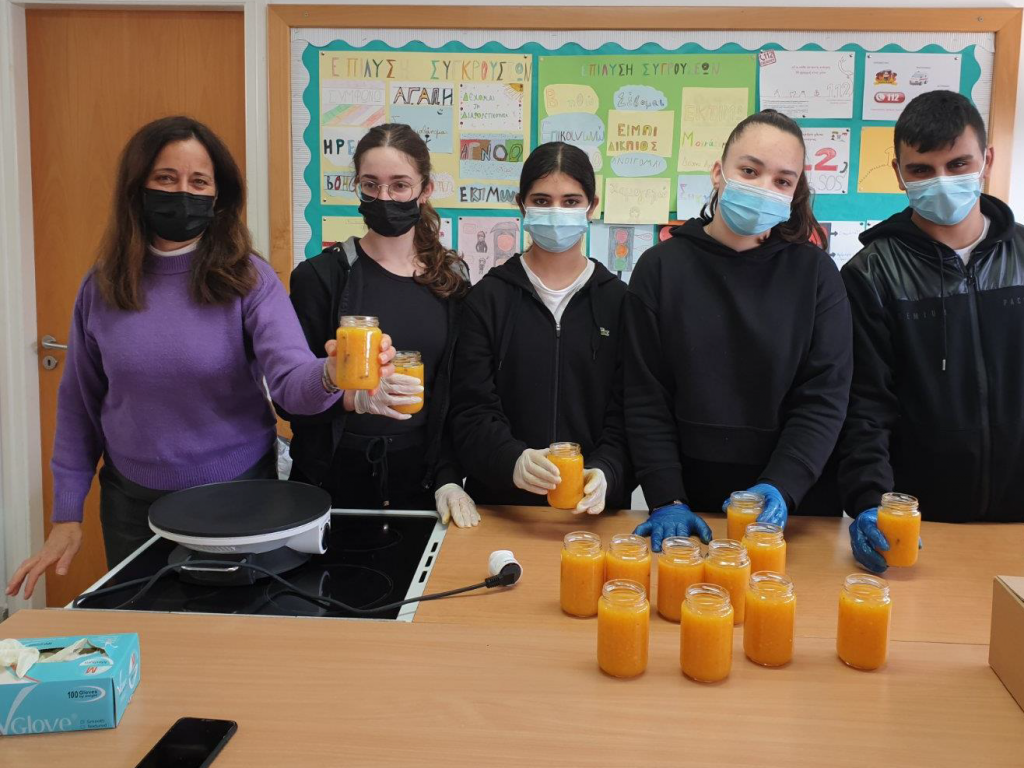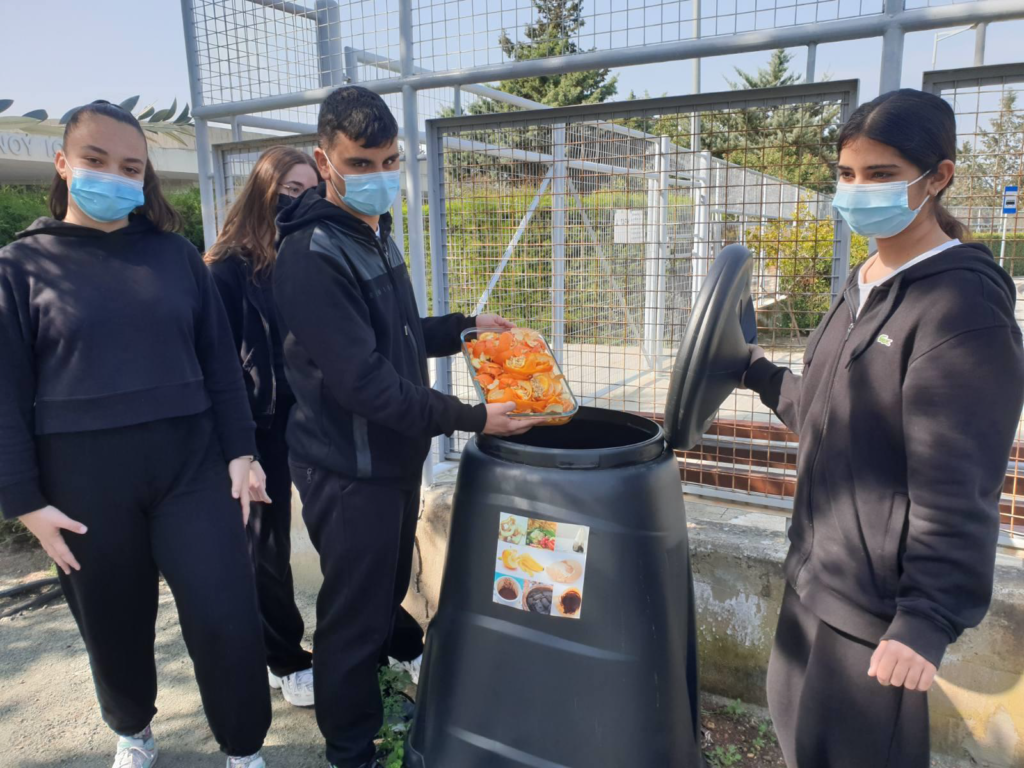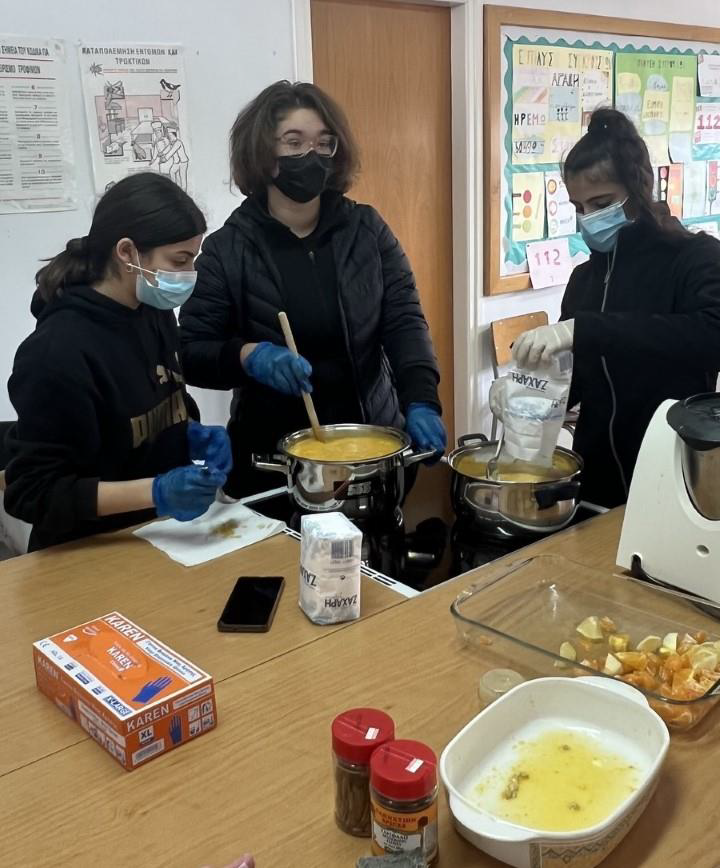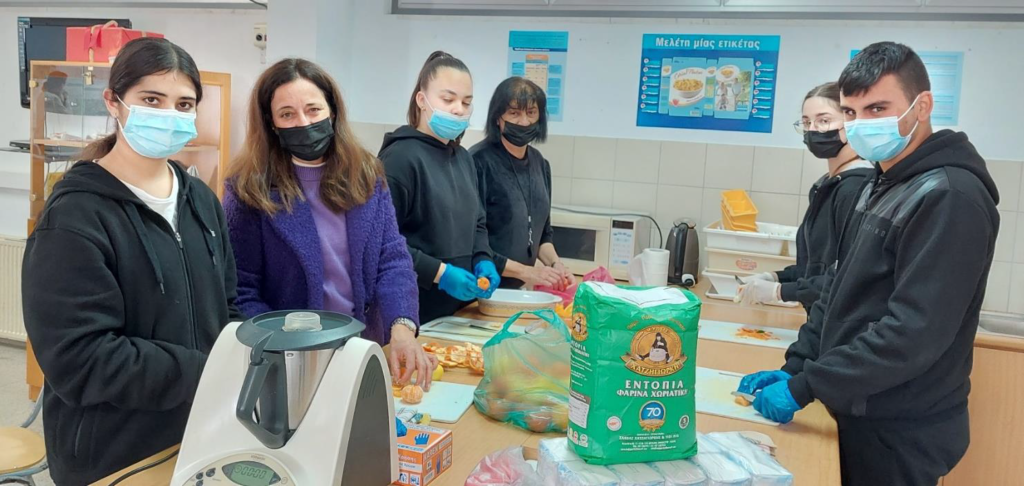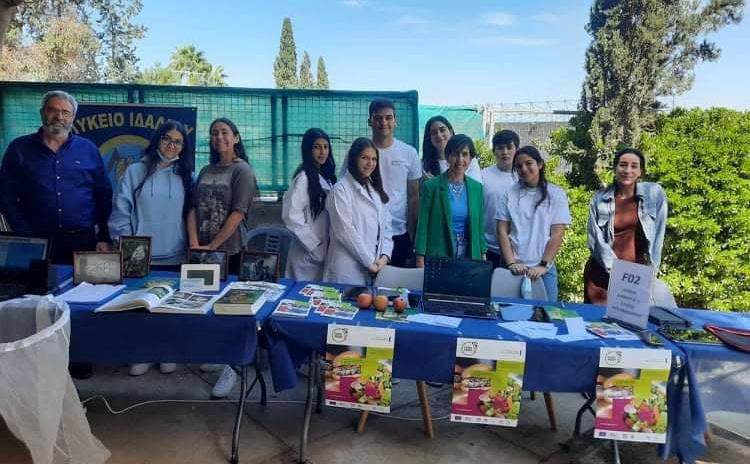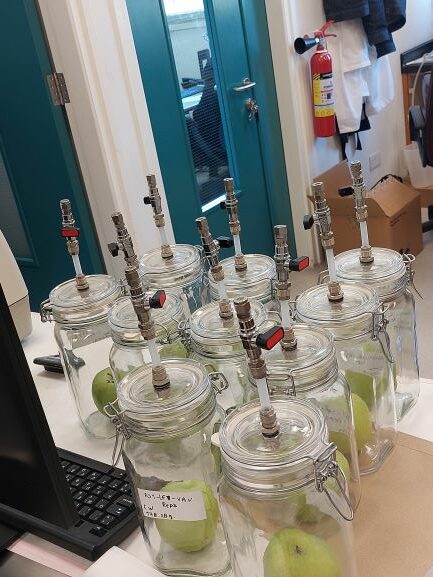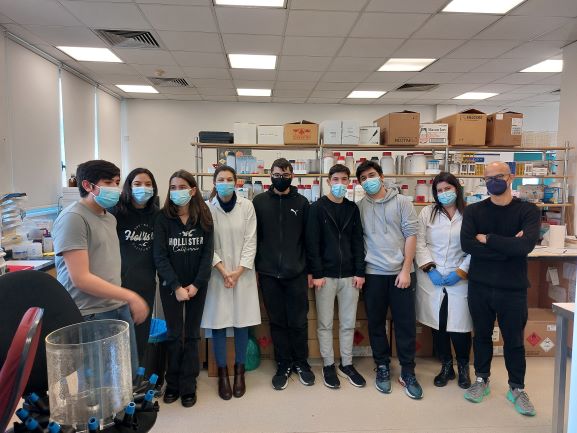Whether food is lost by not being collected from gardens or not being bought in supermarkets, the result is the same: a significant amount of food is thrown away, contributing to global warming. In Cyprus, the topic seems to be of great importance as many students have decided to take up this challenge in their local communities. They presented their project in early November at a public event organised by the University of Cyprus that brought together 65 teachers, researchers, and policymakers from the island and beyond.
The Gymnasio Kokkinochorion is located in the rural village of Frenaros in eastern Cyprus. The Archbishop Makarios III High School, on the other hand, is located in the very urban area of the capital, Nicosia. Students from both schools have noticed a number of unused food items, which also results in massive waste production. They expressed their interest in taking a greater role in protecting the environment by addressing these problems in their communities.
In Frenaros, citrus fruits fall from the trees and are not used by the inhabitants. The students wondered how they could make use of these lost fruits. They came up with the idea of setting up a student business to process the fruit into marmalade, which they would then sell to raise money for school projects. They worked with local authorities, parents, a nearby supermarket, a local mill, and a strawberry grower to set up their business and turn the lost fruits into delicious marmalade. The external partners donated materials needed by the students and helped them in selling the marmalade around. They also made sure to compost what could not be processed and recycle other waste from the marmalade-making process. To carry out the project, the students had to use knowledge of statistics, chemistry, biology, and economics. The project allowed them to explore these concepts in more depth and apply them to a concrete case in real-life settings.
“This project has been a learning curve for our students on how to take responsibility”
Eirini Hadjikonstantinou, physics teacher in Cyprus
In Nicosia, students also noticed that food is wasted, not on the trees but on supermarket shelves. They launched a research project to better understand what speeds up the ripening of fruit and then to propose solutions to slow down the process. With the help of their biology, mathematics, chemistry, and physics teachers, they formulated hypotheses on what could have an impact on the speed of ripening: a high storage temperature and damage to the fruit. They then carried out various measurements and experiments to verify their hypotheses: respiration rate, chemical composition, colour, loss of mass, hardness of the flesh, etc. Through this science project, they developed a set of skills that are not usually encouraged by the mainstream school curriculum: planning, teamwork, and responsibility. Their physics teacher, Eirini Hadjikonstantinou, is really proud of what they have achieved, as the project has been “a learning curve on how to take responsibility”. They presented their results and projects at a science festival to spread the word and raise awareness about this issue. The students now want to develop solutions and alternatives to food waste. They will try to move forward with the support of the Junior Achievement organisation to create an application to donate food that supermarkets can no longer sell but that is still good to eat.

